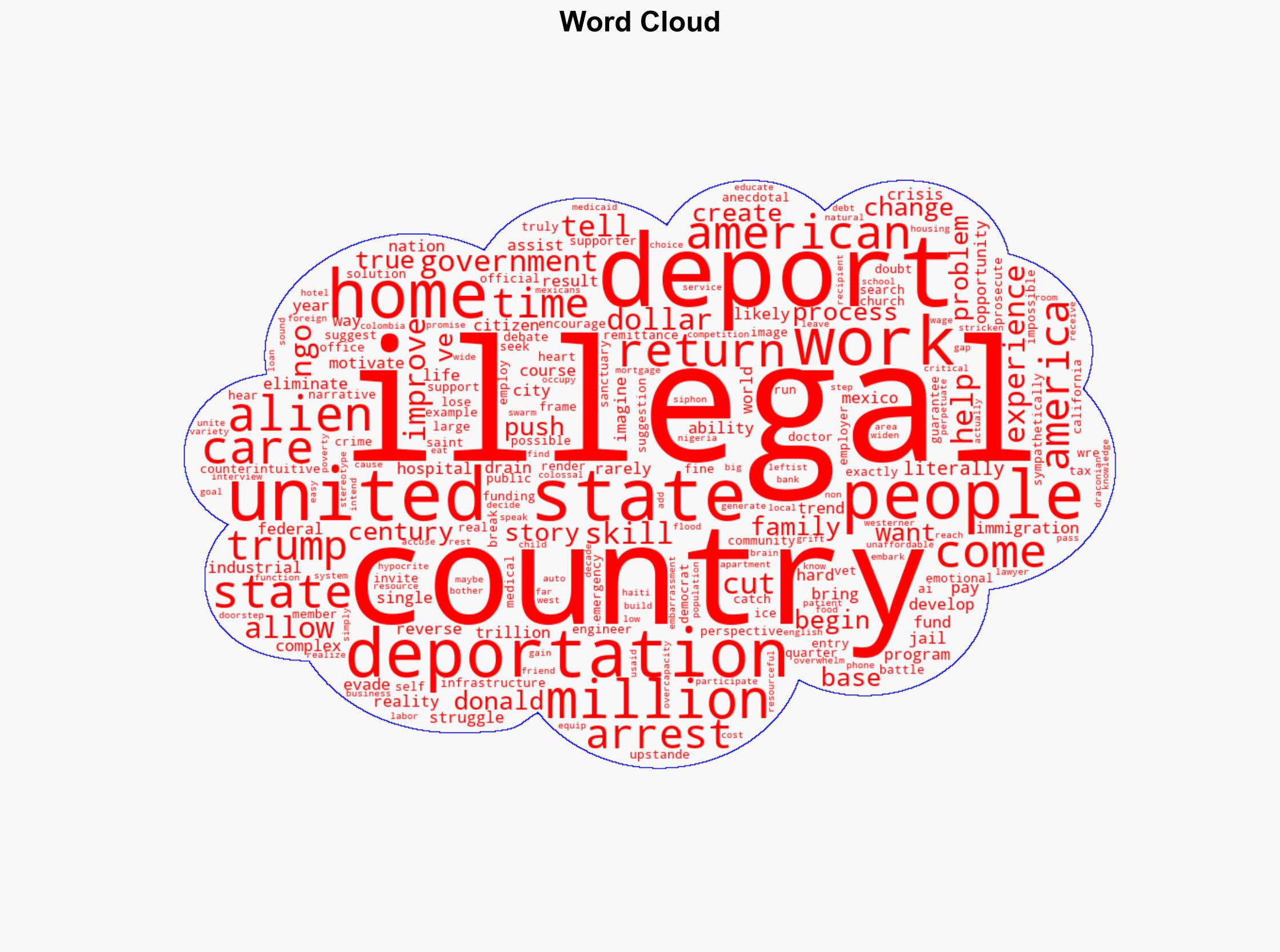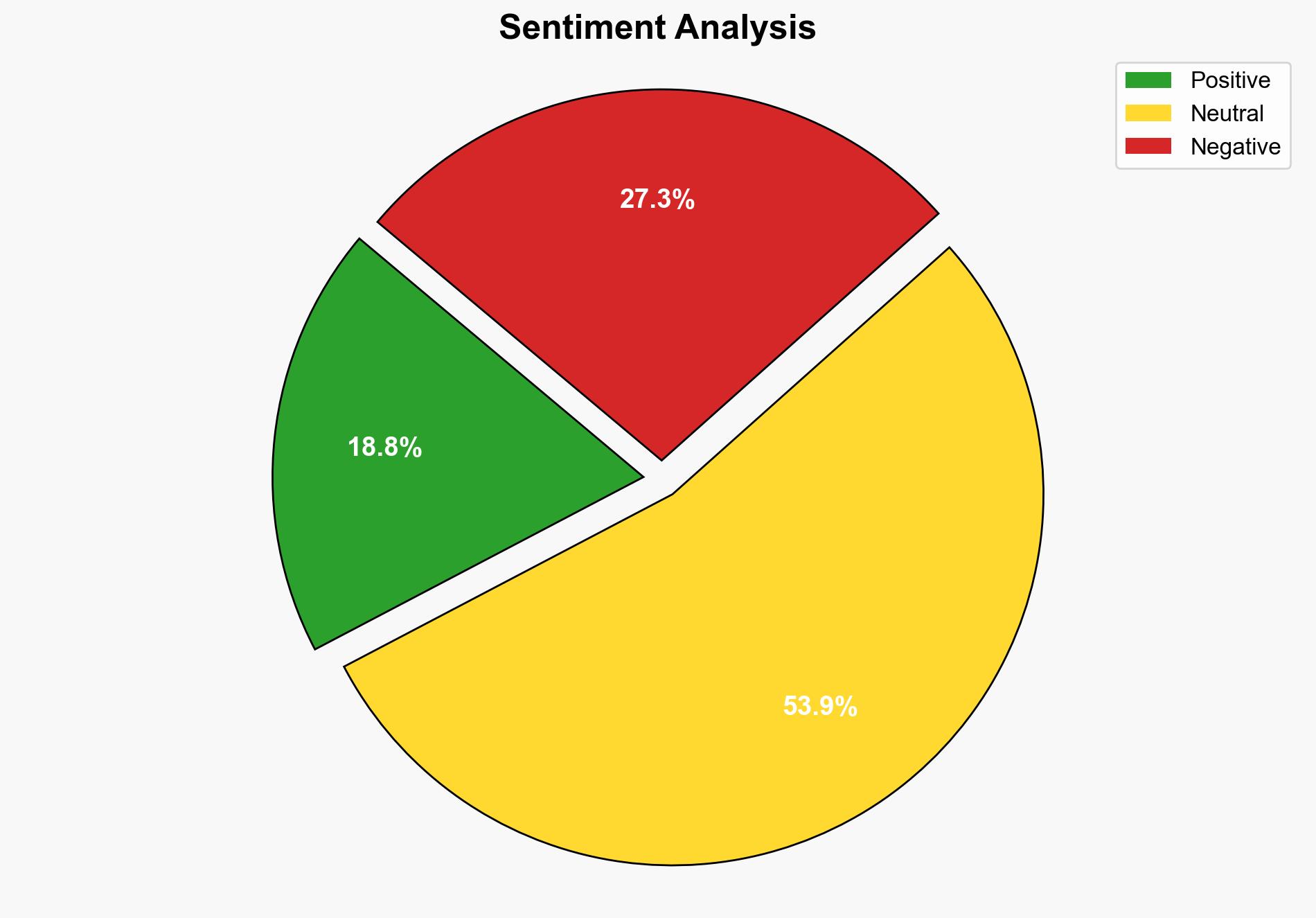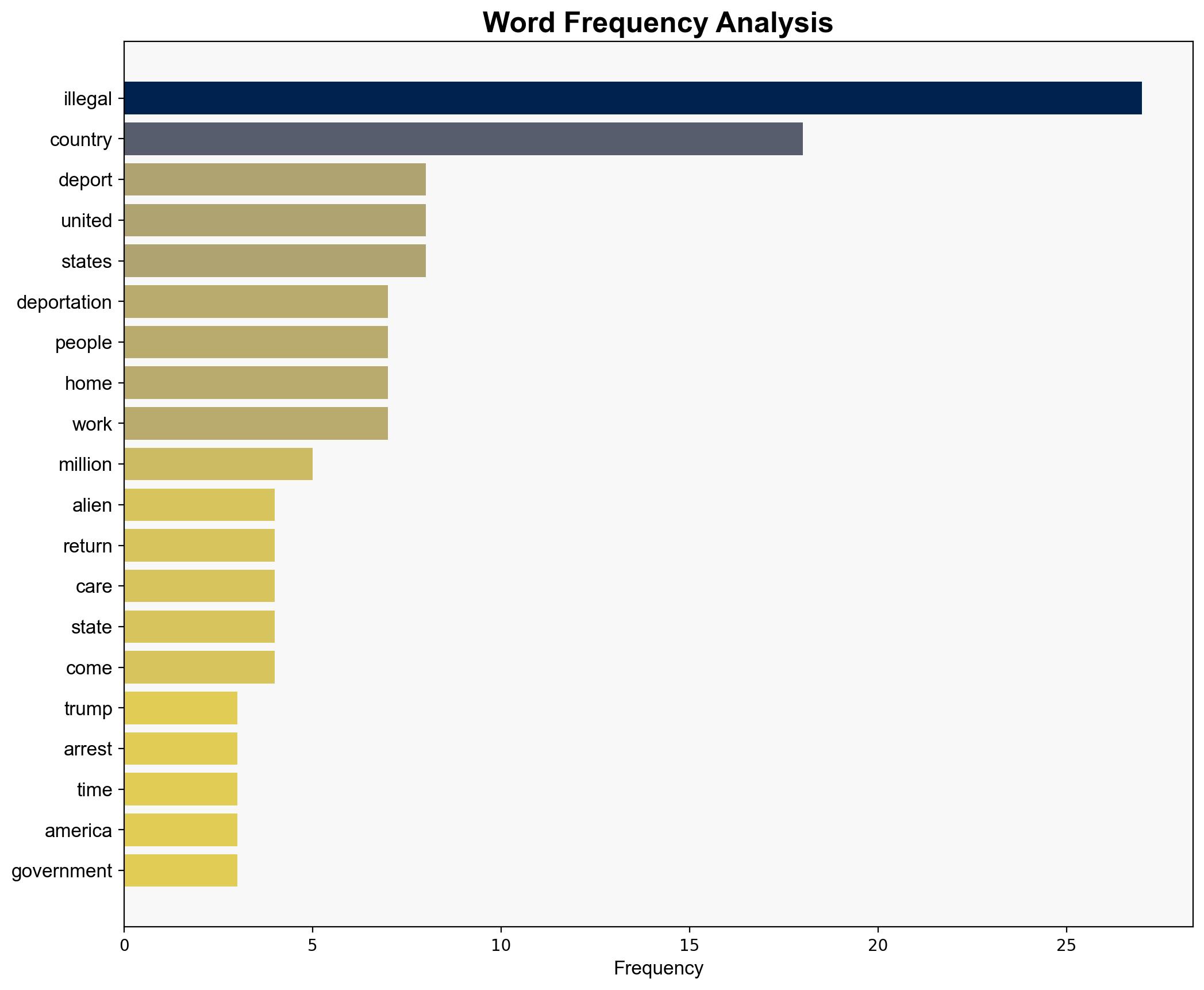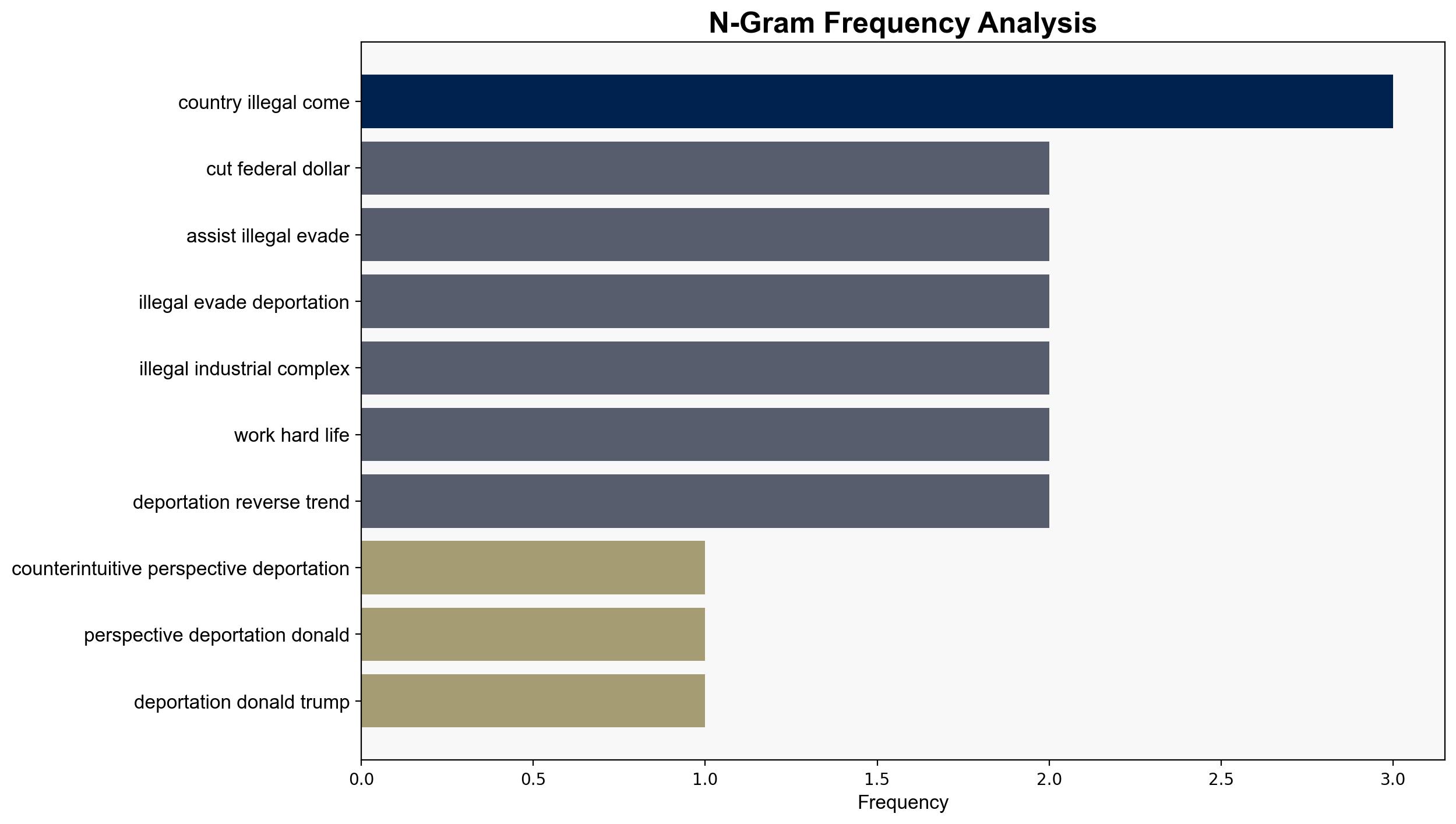A Counterintuitive Perspective on Deportations – Americanthinker.com
Published on: 2025-08-06
Intelligence Report: A Counterintuitive Perspective on Deportations – Americanthinker.com
1. BLUF (Bottom Line Up Front)
The analysis suggests that the hypothesis advocating for increased deportations as a means to alleviate domestic economic strain and enhance foreign development is more supported by the source text. However, this perspective is contingent on several assumptions that may not hold universally. The strategic recommendation is to conduct a comprehensive cost-benefit analysis of deportation policies, considering both domestic and international impacts. Confidence level: Moderate.
2. Competing Hypotheses
1. **Hypothesis A**: Increased deportations will alleviate domestic economic burdens by freeing up resources and jobs, while simultaneously benefiting foreign countries by returning skilled individuals.
2. **Hypothesis B**: Deportations will exacerbate domestic social tensions and economic issues, while having negligible or negative impacts on foreign countries due to potential destabilization and loss of remittances.
Using the Analysis of Competing Hypotheses (ACH) 2.0, Hypothesis A is more supported by the source text, which emphasizes the potential economic and social benefits of deportations. Hypothesis B lacks direct support in the text but remains plausible due to potential socio-economic disruptions.
3. Key Assumptions and Red Flags
– **Assumptions**: Hypothesis A assumes that deported individuals will contribute positively to their home countries and that domestic resources will be reallocated effectively. Hypothesis B assumes that deportations will lead to significant social unrest and economic loss.
– **Red Flags**: The text lacks empirical data supporting the economic benefits of deportations. There is a potential bias in framing deportations as universally beneficial without considering individual circumstances.
– **Blind Spots**: The impact of remittances on foreign economies is not addressed, nor is the potential for increased illegal immigration due to stricter deportation policies.
4. Implications and Strategic Risks
– **Economic Risks**: Potential short-term labor shortages in sectors reliant on immigrant labor. Long-term risks include destabilization of foreign economies reliant on remittances.
– **Social Risks**: Increased social tensions and potential for civil unrest due to perceived targeting of immigrant communities.
– **Geopolitical Risks**: Strained diplomatic relations with countries affected by mass deportations.
– **Psychological Risks**: Heightened fear and uncertainty within immigrant communities, potentially leading to decreased cooperation with law enforcement.
5. Recommendations and Outlook
- Conduct a detailed economic impact assessment of deportation policies, focusing on both domestic and international effects.
- Engage in diplomatic dialogues with affected countries to mitigate potential geopolitical fallout.
- Develop community outreach programs to address social tensions and promote integration.
- Scenario Projections:
- Best Case: Balanced deportation policies lead to economic stabilization and improved foreign relations.
- Worst Case: Aggressive deportations result in economic downturns and heightened social unrest.
- Most Likely: Mixed outcomes with some economic benefits offset by social and geopolitical challenges.
6. Key Individuals and Entities
The report does not specify individuals by name. It references general entities such as NGOs, government officials, and sanctuary cities.
7. Thematic Tags
national security threats, economic impact, immigration policy, geopolitical relations




